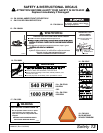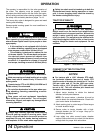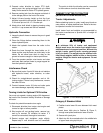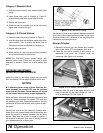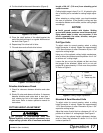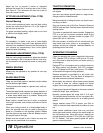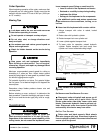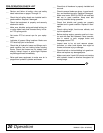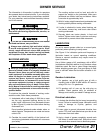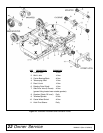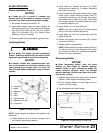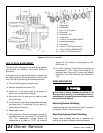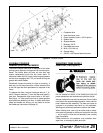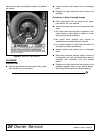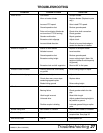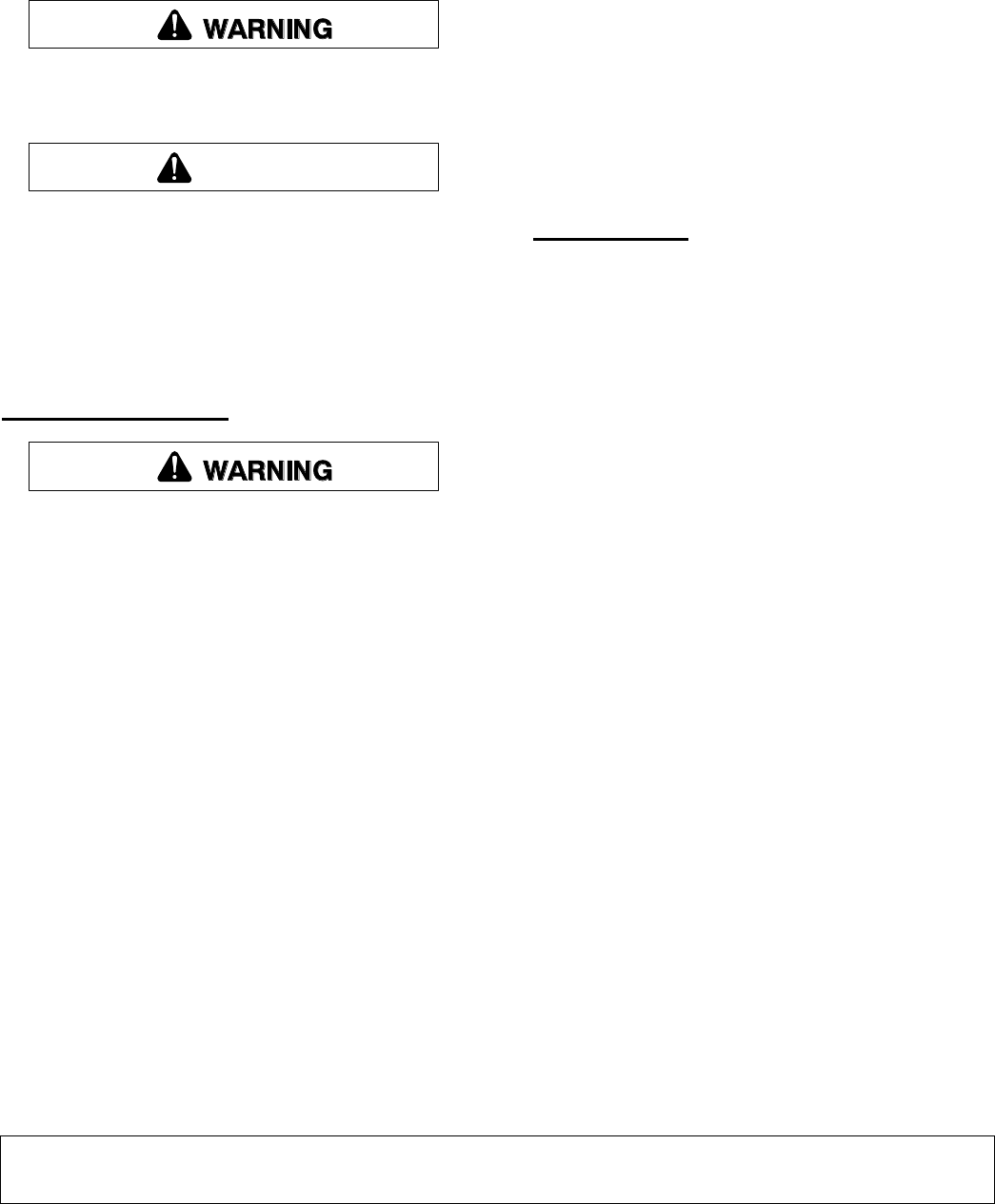
Owner Service 21
MAN0571 (Rev. 6/15/2007)
OWNER SERVICE
The information in this section is written for operators
who possess basic mechanical skills. If you need help,
your dealer has trained service technicians available.
For your protection, read and follow the safety informa-
tion in this manual.
Keep all persons away from operator control
area while performing adjustments, service, or
maintenance.
If you do not understand any part of this manual
and need assistance, see your dealer.
Always wear relatively tight and belted clothing
to avoid entanglement in moving parts. Wear
sturdy, rough-soled work shoes and protective
equipment for eyes, hair, hands, hearing, and head;
and respirator or filter mask where appropriate.
BLOCKING METHOD
Never go underneath equipment (lowered to the
ground or raised) unless it is properly blocked and
secured. Never place any part of the body under-
neath equipment or between moveable parts even
when the engine has been turned off. Hydraulic
system leak down, hydraulic system failures,
mechanical failures, or movement of control levers
can cause equipment to drop or rotate unexpect-
edly and cause severe injury or death. Follow Oper-
ator's Manual instructions for working underneath
and blocking requirements or have work done by a
qualified dealer.
To minimize the potential hazards of working under-
neath the cutter, follow these procedures.
1. Jackstands with a load rating of 1000 lbs or more
are the only approved blocking device for this
cutter. Install a minimum of four jackstands (shown
by Xs in Figure 10) under the cutter before working
underneath unit.
Do not position jackstands under wheels, axles, or
wheel supports. Components can rotate and cause
cutter to fall.
2. Consider the overall stability of the blocked unit.
Just placing jackstands underneath will not ensure
your safety.
The working surface must be level and solid to
support the weight on the jackstands. Make sure
jackstands are stable, both top and bottom. Make
sure cutter is approximately level.
3. With full cutter weight lowered onto jackstands, test
blocking stability before working underneath.
4. If cutter is attached to tractor when blocking, set
the brakes, remove key, and block cutter before
working underneath.
5. Securely block rear tractor wheels, in front and
behind. Tighten tractor lower 3-point arm anti-sway
mechanism to prevent side-to-side movement.
LUBRICATION
Do not let excess grease collect on or around parts,
particularly when operating in sandy areas.
See Figure 10 for lubrication points and frequency or
lubrication based on normal operating conditions.
Severe or unusual conditions may require more fre-
quent lubrication.
Use a lithium grease of #2 consistency with a MOLY
(molybdenum disulfide) additive for all locations unless
otherwise noted. Be sure to clean fittings thoroughly
before attaching grease gun. One good pump of most
guns is sufficient when the lubrication schedule is fol-
lowed.
Gearbox Lubrication
1. For gearbox, use a high quality gear oil with a
viscosity index of 80W or 90W and an API service
rating of GL-4 or -5 in gearboxes.
2. Fill gearbox until oil runs out the side plug on
gearbox. Check gearbox daily for evidence of
leakage, and contact your dealer if leakage occurs.
Driveline Lubrication
1. Lubricate the driveline slip joint every ten operating
hours. Failure to maintain proper lubrication could
result in damage to U-joints, gearbox, and
driveline.
2. Lower cutter to ground, disconnect driveline from
tractor PTO shaft, and slide halves apart but do not
disconnect from each other.
3. Apply a bead of grease completely around male
half where it meets female half. Slide drive halves
over each other several times to distribute grease.
CAUTION



